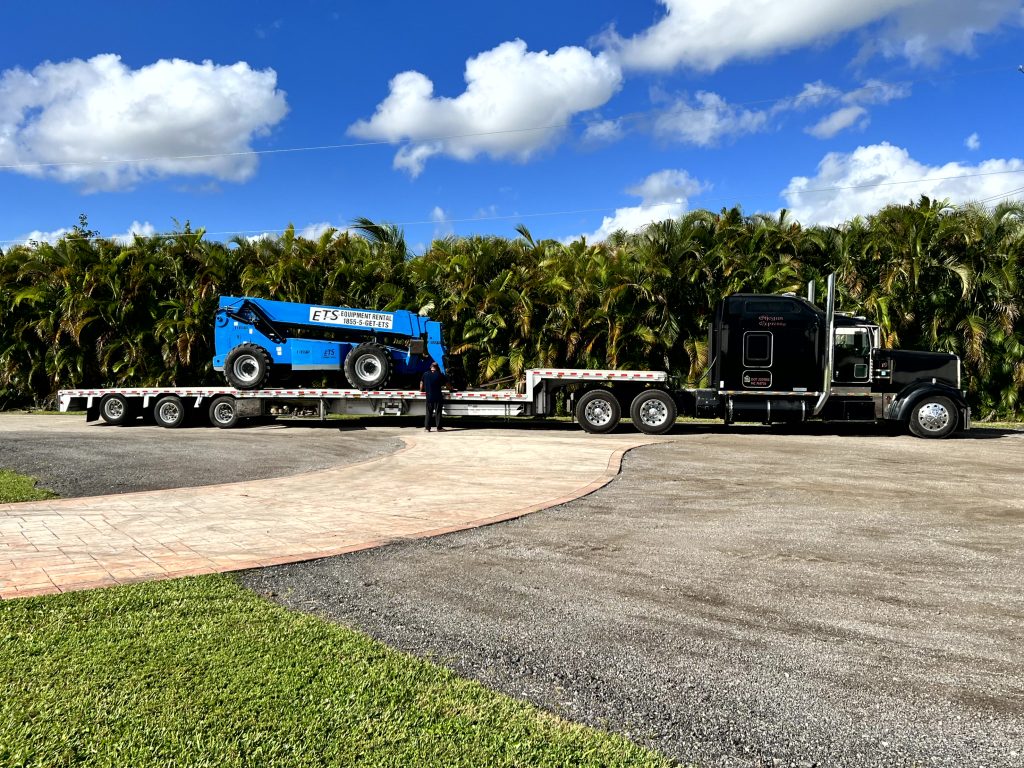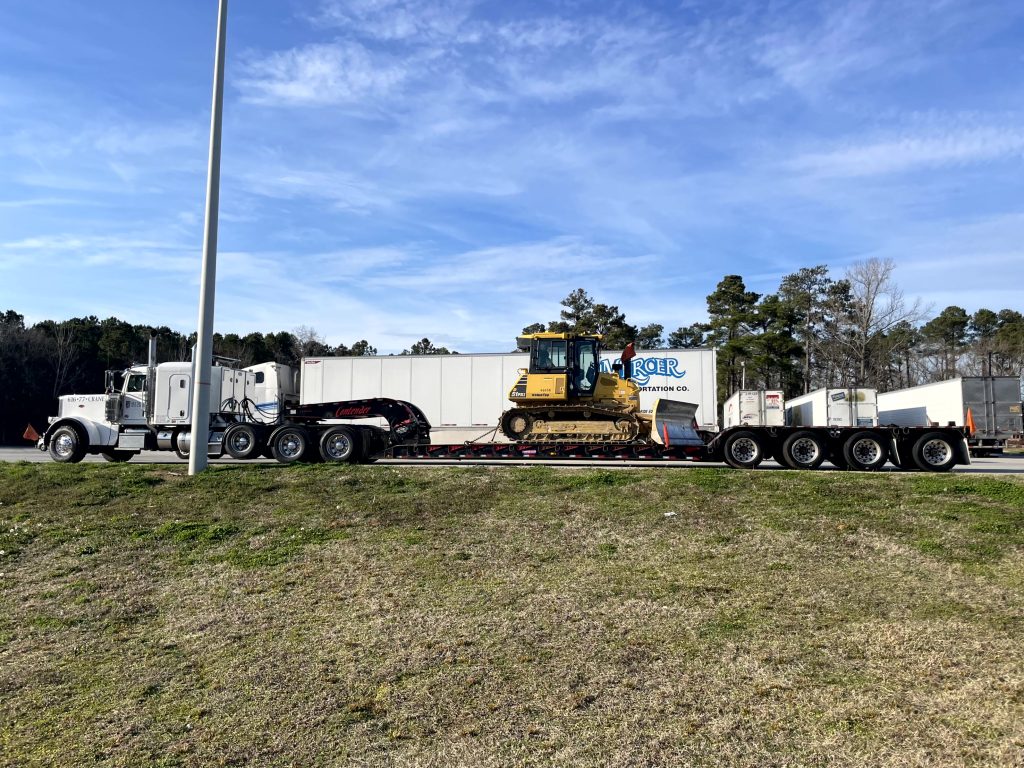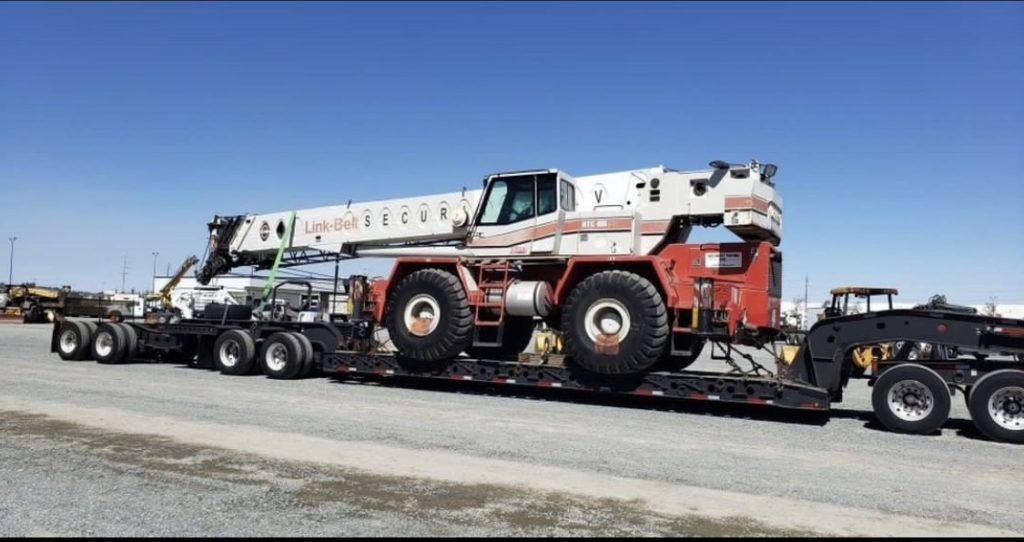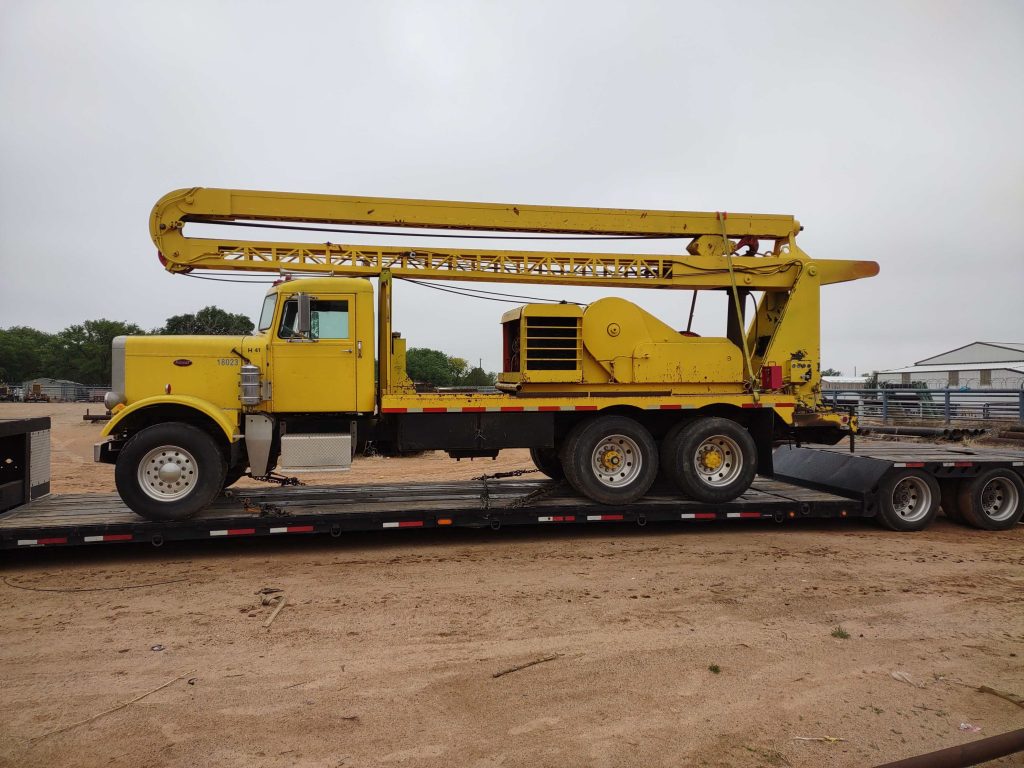What is Heavy Haul Trucking?
Freedom Heavy Haul can offer expedited Pickup and Delivery for any size shipment anywhere in the USA. Contact us today for No Hassle, No Pressure Pricing.
The world of heavy haul trucking is a specialized and crucial sector within the transportation industry. It involves transporting oversized or overweight loads that require special handling, equipment, and permits. In this article, you will learn what is heavy haul trucking and its various aspects, providing insights into what it entails, the requirements, and how to navigate it successfully.

What is Heavy Haul Trucking
Heavy-haul trucking is an essential component of logistics and supply chain management, especially in industries such as construction, manufacturing, and energy. These trucks transport large items like construction equipment, industrial machinery, and wind turbine components that cannot be broken down into smaller loads. Due to their size and weight, these loads require specialized trailers and expert handling to ensure safe and efficient transport.
Defining a Heavy Load in Trucking Terms
Understanding what constitutes a heavy load is critical in heavy haul trucking. Generally, any load exceeding the standard legal limits of size and weight set by state and federal regulations is considered a heavy load. These limits vary, but typically, a load is considered heavy if it’s over 8.5 feet wide, 13.5 feet tall, and weighs more than 80,000 pounds.

Heavy Haul Freight Dimensions
The dimensions of heavy haul freight are crucial as they determine the type of equipment needed for transportation. Loads can range from slightly over-dimensional to extremely large and heavy, requiring multi-axle trailers.
Commodity Weight Considerations
The weight of the commodity is also a significant factor. Heavier loads often require additional axles on the trailer to distribute the weight evenly and comply with road weight limits.
Regulations and Restrictions in Heavy-Haul Trucking
Heavy-haul trucking is heavily regulated to ensure road safety and infrastructure protection. Truckers and companies must adhere to various federal and state regulations that dictate route planning, load limits, and travel times.
Axle Restrictions
Axle restrictions are crucial in heavy haul trucking. The weight per axle is regulated to prevent road damage. Trucks must be equipped with the appropriate number of axles for their load weight.
Regional and National Regulations
These regulations vary regionally and nationally. Truckers must be aware of the specific requirements in each area they will travel through, including bridge weight limits and road restrictions.
Heavy-Haul Trucking Permits
Obtaining the right permits is a critical step in heavy-haul trucking. Permits are required to move oversized or overweight loads and vary depending on the load, the type of truck, and the route taken.
Understanding Permit Limitations
Permits come with specific limitations regarding the route, travel times, and escort requirements. Failure to comply with these limitations can result in hefty fines and legal complications.
State-Specific Permit Requirements
Each state has its own set of requirements for heavy-haul permits. Truckers must obtain permits from each state they will pass through, and these permits must reflect the specific dimensions and weight of their load.
Additional Requirements for Heavy-Haul Trucking
Apart from permits and specialized equipment, heavy haul trucking involves additional safety requirements to protect the trucker, the load, and other road users.

Safety flags
Safety flags are used to increase visibility. They are usually bright red or orange and are placed at the widest points of the load.
Lights
Additional lighting is required for better visibility, especially for oversized loads and for night travel.
Escort vehicles
For certain oversized loads, escort vehicles (or pilot cars) are necessary. They help in navigating traffic and ensuring road safety.
Banners
Banners indicating an oversized load are mandatory on both the truck and the escort vehicle. This alerts other road users to the presence of an unusually large load.
Route Surveys and Planning
Conducting route surveys and meticulous planning is essential to identify potential obstacles such as narrow roads, low bridges, or tight turns.
Driver Qualifications and Training
Drivers must have specific qualifications and training to handle heavy haul loads safely. This includes understanding load balancing, securement techniques, and emergency response.
Steps to Begin a Career in Heavy-Haul Trucking
Starting a career in heavy-haul trucking requires dedication, training, and the right qualifications. It is a challenging but rewarding career path for those interested in logistics and transportation.

Acquiring the Necessary Licenses and Certifications
Prospective drivers must obtain a commercial driver’s license (CDL) and may need additional endorsements for specific types of loads.
Training and Skills Development
Specialized training in load securement, vehicle maintenance, and safety compliance is essential. Many companies offer on-the-job training programs for new drivers.
Trailers and Equipment Used in Heavy Haul Trucking
The right trailer and equipment are fundamental in heavy haul trucking. There are various types of trailers designed to accommodate different loads.
Types of Heavy Haul Trailers
Common trailers include flatbeds, step-deck trailers, and multi-axle extendable trailers, each designed for specific types of loads.
Heavy Haul Tractors
Tractors used in heavy haul trucking are powerful and often customized to handle the additional strain of oversized loads.
Axle Configuration and Addition
The number of axles on a trailer is crucial for weight distribution. Additional axles may be added for extremely heavy or large loads.
Unique Challenges and Solutions in Heavy Haul Trucking
Heavy haul trucking presents unique challenges, from logistical planning to regulatory compliance.
Cost Factors in Heavy Haul Shipping
The cost of heavy haul shipping is influenced by factors such as load size, distance, and the need for special equipment or escorts.
Contracting Necessary Safety Services
Contracting with companies that provide route planning, escort services, and load securement expertise is often necessary.
Preparing for a Heavy Haul Load Shipment
Preparation is key in heavy haul trucking. From securing the right permits to ensuring the load is properly secured, every detail matters.
Initial Steps to Ship a Heavy Haul Load
The first steps include understanding the load’s requirements, obtaining necessary permits, and planning the route.
Finding Quality Heavy-Haul Loads
Truckers can find heavy-haul loads through load boards, freight brokers, or direct contracts with companies.
Getting a Quote for Heavy Haul Trucking
To get a quote for heavy haul trucking, provide detailed information about the load, the route, and any special requirements.







